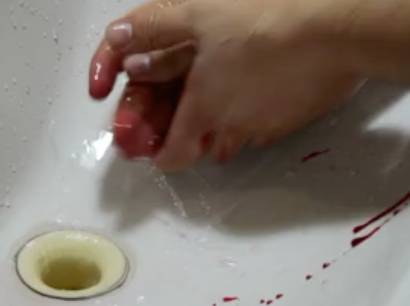This Week's Story
Dr. Blackwell was revolutionary! No "nice" woman in the 1840's talked and acted as she did.

This Week’s Story relives American history and the Bible through brief inspiring stories presented on mp3 audio recordings and text for reading.
You cannot be a doctor! part two
Elizabeth’s neighbors wanted nothing to do with her. They thought: She has trashy morals or she’s crazy. She is the only woman training to be a doctor at the Geneva Medical College. She ought to know that no woman should become a doctor!
Elizabeth’s male classmates treated her with courtesy and respect. Some wanted to know her closer. She decided, I can’t get involved with any of them, or I may not become a doctor. She felt lonely, but her studies were stimulating.
She expected to be revolted by sick or injured patients, but it was her teachers who nauseated her. They came from hospitals into class with stinking jackets streaked with blood and pus. They wiped blood off their hands with handkerchiefs and put them back in their pockets. They seemed proud of their smell and appearance.
The school year passed and Elizabeth did well on her final exams. Summer came and she worked in the Blockley Almshouse in Philadelphia. It was a filthy place with a hospital, poorhouse, orphanage, and insane asylum. In its chaos and suffering was Elizabeth’s first work in a hospital.
The doctors were blood-spattered like her teachers had been. Buckets of slop and vomit were not emptied regularly and kept the air putrid. Doctors used black shining leeches to suck blood. The leeches looked disgusting, but Elizabeth had been taught that taking blood from sick persons might help them get well. It could bring their body fluids into balance. Some doctors preferred to take blood by making a small knife cut.
Elizabeth was horrified with the running sores, ulcers, infections with no known cure that many women had from sexually transmitted diseases. She became convinced: Women need to be taught how to avoid such diseases. Her thinking was revolutionary! No nice woman talked about such things in the 1840’s. She wrote to her sister Marian, “So help me God, I will not be blind, indifferent, or stupid in relation to this matter, as are most women.”
She returned to medical school and January 23, 1849 she graduated from Geneva Medical College, the first woman to become a medical doctor in the United States. At the ceremonies, Professor Lee called Elizabeth the leader of her class.
Soon Elizabeth, now Dr. Blackwell, was in Paris. She had been told, “Go to Paris where the most advanced medical training can be found.” She was accepted to train at La Maternité in obstetrics. Many young women went there to become midwives, but Elizabeth was a fully certificated medical doctor. She learned that the French doctors had little faith in a female doctor. She allowed herself to be treated as a midwife so she could get the training she wanted.
As she cared for women in labor and babies, she could not escape the horror that many were dying from an unknown cause, called puerperal fever. Fewer died when mothers had their babies at home with the help of a midwife. Women often pleaded, “I want to have my baby at home.” Doctors in hospitals seemed to be agents of death.
Elizabeth saw doctors perform autopsies on dead mothers and babies and then go with unwashed hands to treat women in labor. She read a study by Dr. Semmelweis, who was studying the issue. Then a shocking accident destroyed one of her eyes.
Elizabeth’s loss and response will be brought to you soon.
You are invited to visit thisweeksstory.com.
<< previous story] [next story >>
We invite your comments! [click here to comment]
This Week's Story is a non-profit supported by listeners. [click here to make a donation]
 click here to play audio
click here to play audio